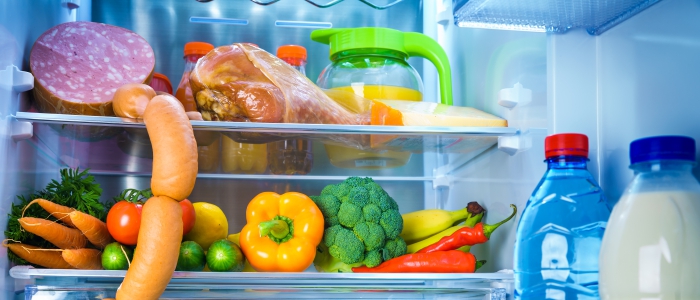There is a lot of information circulating on our televisions, radios and social media platforms regarding the Listeriosis outbreak and what you as a consumer should do to protect yourself and your family.
Sadly, the use of these communication methods does not ensure that every single potential consumer is informed.
In particular, we suggest schools need to reach out to parents by using their own newsletters and class instruction to educate children about the nature of the outbreak, products affected as well as the symptoms of Listeriosis. Right now, effective communication is crucial, and nobody should be excluded.
What is listeriosis
Listeriosis is a serious bacterial disease caused by the bacterium(germ), Listeria monocytogenes. The bacterium is commonly found in nature in soil, water and contaminated food. Animals and food products such as vegetables can become contaminated from these sources. It is not visible to the human eye and although food may appear to be okay, it could be contaminated. This is what makes it so difficult to believe that something could be wrong with the product – it looks fine and smells good, but it may be very dangerous.
What are the symptoms
Anyone can get Listeriosis. However, those at high risk of severe disease are newborns, the elderly, immunocompromised individuals, pregnant women and their unborn babies; and those with underlying conditions such as HIV, diabetes, cancer, chronic liver or kidney disease.
Infection with Listeria usually results in gastro-enteritis with symptoms ranging from mild to severe. However, in persons with weak immunity, Listeriosis can lead to meningitis leading to headaches, confusion, stiff neck, loss of balance or convulsions and even septicaemia. In pregnant women, Listeriosis may results in pregnancy loss (abortion) along with meningitis of their infant.
How can I get listeriosis
Listeriosis is usually spread through eating contaminated food products most frequently with raw or unpasteurised milk and soft cheeses, but also vegetables, processed foods, ready-to-eat meats and smoked fish products.
The Listeria bacterium can also be transmitted from a pregnant woman to her unborn baby during pregnancy or at the time of birth.
How can I protect myself
If you are pregnant avoid any of the foods:
- Raw or unpasteurized milk, or dairy products that contain unpasteurized milk;
- Soft cheeses (e.g. feta, goat, Brie);
- Foods from delicatessen counters (e.g. prepared salads, cold meats) that have not been heated/reheated adequately;
- Refrigerated pâtés
- Processed meats like polony
Practice good hygiene in your kitchen
- As Listeria can grow at refrigerated temperatures make sure you set yours as cold as you can 4°C should be the maximum. Don’t overfill your fridge to allow if to work effectively.
- Make sure your freezer is also working properly at -18°C and don’t overfill it.
- Make sure you keep your fridge clean and wipe any drips from raw food immediately.
- Always store raw foods below cooked foods to avoid any drips that can contaminate ready to eat foods.
- Using only pasteurized dairy products;
- Thoroughly cooking raw foods from animal sources, such as beef, pork or poultry;
- Washing your hands before preparing food, before eating and after going to the toilet;
- Washing and decontamination of kitchen surfaces and utensils regularly, particularly after preparing raw meat, poultry and eggs, including industrial kitchens;
- Washing raw vegetables and fruits thoroughly before eating.
- Ensure you reheat food thoroughly – rather too hot and let it cool down than luke warm to start.
What to do about the polony recall
We don’t need more media hype or angry consumers – now we need to work together to save lives. The National Consumer Commission has issued a recall for all Enterprise processed meats. In a nutshell this is what we as parents, school teachers and every other person should be doing to safe guard ourselves as well as our children.
- Remove all these processed cold meats from your fridge – this includes viennas, polonies and other cold cuts.
- Clean your fridge with a diluted bleach and make sure that all surfaces that were exposed to these products are wiped down.
- Ensure you wash your hands thoroughly after handling these products.
- Don’t buy these products until we have been informed by the National Department of Health that the products are safe to consume.
- Don’t forget the basics of food hygiene – wash your hands, wash your fruit, wash your vegetables! And don’t handle raw or processed meat and vegetables at the same time.
- Ensure you cook food thoroughly
- Continue to educate others.
Please also be responsible in disposing of the product. In our country we have hungry people who are living off whatever we throw away. Be responsible and destroy the packaging and the product before you dispose of it in your dustbins. Bury the product (only if you do not have pets) or burn it – this way we know for sure that it cannot be retrieved from a garbage bag or dump site.
South Africa has faced many challenges in the past – we are a strong and caring nation so let’s work together!
Author: Debbie Brandt - Progress excellence
Email: debbie@progress-excellence.co.za
Useful document from the National Institute of Communicable Diseases on How to Eradicate Listeria From Your kitchen or Small Shop...
You think you may have had products in your fridge which may have been be contaminated with listeria? So now what should you do? Here are some tips....





